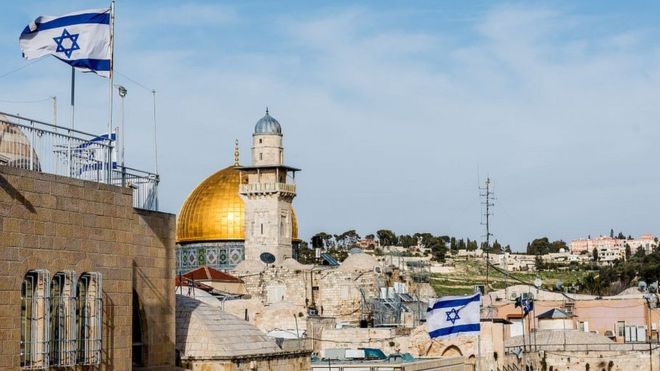In a major shift in Australian foreign policy, Prime Minister Scott Morrisson has announced that Australia shall recognize West Jerusalem as Israel’s capital. “The Australian government has decided that Australia now recognizes west Jerusalem, as the seat of the Knesset and many of the institutions of government, is the capital of Israel,” Morrison said. Although the Australian embassy will not immediately shift from Tel Aviv, the Australia government will establish a defense and trade office in Jerusalem and would also start looking for an appropriate site for the embassy.
Morrisson stated that his government will not shift the embassy to West Jerusalem until there’s a peace settlement between Israel and Palestine in favor of the two-state solution. He also asserted that the decision respects both a commitment to a two-state solution and long-standing respect for relevant UN Security Council resolutions.
“Slavish adherence to the conventional wisdom over decades appears only to be further entrenching the stalemate, providing for everyone just to keep doing what they were doing and looking the other way, that’s not the way I deal with problems”, he said.
Morrison also echoed Israel’s grievances with regard to being isolated at the United Nations, saying, “We regard the biased and unfair targeting of Israel in the UN general assembly in particular, as deeply unhelpful to efforts to build peace and stability. The UN general assembly is now the place where Israel is bullied and where antisemitism is cloaked in the language of human rights.”
Australia has become the third country to make this move, the other two being Guatemala and the United States, the only difference being that it recognizes only West Jerusalem as the capital of Israel and not the entire city. The city is of religious significance to followers of Abrahamic religions, Judaism, Christianity, and Islam. The Israeli-Palestinian conflict intensified in the early twentieth century and in 1967, Israel annexed East Jerusalem in the Six Day War and declared it to be the unified capital of Israel. However, this annexation is not recognized by the United Nations. Palestine lays claim to East Jerusalem which is home to the most sensitive holy sites including the Temple Mount which is a holy site for both Jews and Arabs and represents the ultimate bone of contention between the two communities in Jerusalem.
Last year in December, the Trump administration overturned 70 years of American foreign policy and recognized Jerusalem as the Capital of Israel. The decision upset the United Nations and infuriated Palestine and other Arab and Islamic countries. Australia is also facing a backlash from Palestinian leaders and its neighboring Muslim countries, Malaysia and Indonesia. It could jeopardize the signing of a critical free-trade deal with Indonesia, as the Indonesian government has been facing pressure at home to deal strongly with Australia ever since Morrison hinted at both recognizing Jerusalem and moving the Australian embassy there. In October Malaysia warned moving the embassy could fuel terrorism.
For decades the international community maintained that the city’s status should be negotiated between Israel and the Palestinians. But it has come to a ‘rancid stalemate’ with constant fighting and suffering in the region. Although the Modi government has warmed up ties with Israel ever since a historical maiden visit in 2017, India is still reluctant to extend its support to Israel and largely conforms to its age-old foreign policy on the matter. However, with another nation such as Australia taking a stand for a faster solution and speaking out against the United Nations’ bias against Israel, the tide could turn in favor of Israel in the future.








